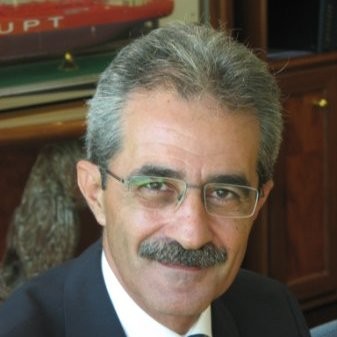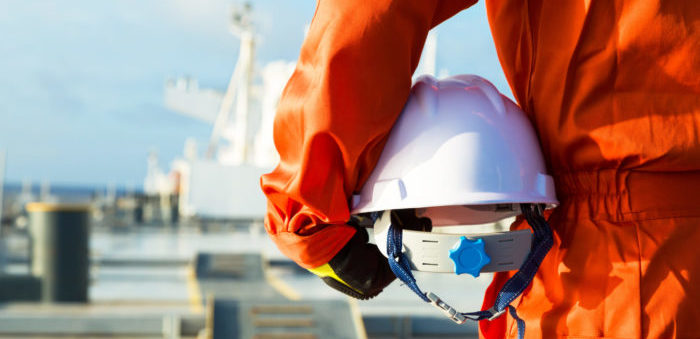This time, our special column, in association with The North of England P&I Club, sheds focus on safety management asking industry experts whether a change is being noticed, considering that the ISM Code, which firstly introduced Safety Management Systems as the core requirement, has turned 20 years old! In this regard, we asked global experts to share their views on the following question:
Is the approach to safety management changing?
 Colin Gillespie Colin GillespieDirector (Loss Prevention) The North of England P&I Club |
 Dustin Eno Dustin EnoCOO & Crisis Response Manager Navigate Response |
|
| Yes. Since the introduction of the ISM Code 20 years ago, vessels’ safety management systems (SMS) have evolved and grown. Safety management systems (SMS) can be overly long and complex in their use of language, making them difficult to use. To some extent these systems are a victim of their own success. They have been an extremely effective tool for companies and seafarers to manage their vessels. But documentation can often run to hundreds of pages and tens of thousands of words – too much for anyone to easily digest. If a system is difficult to use this leads to workarounds or procedures being ignored. Recently a number of companies have taken steps to re-write and re-structure their SMS with a focus on making them accessible to the end user i.e. the seafarer. Companies are also considering how they can better support seafarers in safety behaviours.So the change in emphasis we are seeing is a move away from using systems to control seafarer’s actions and towards providing seafarers with the tools and behaviours they need to do the job. At North we call this change in emphasis Safety Management 2.0. you can read more about Safety Management 2.0 on our website. | Yes. Working in crisis communications, my focus is on soft skills – thinking, feeling and communicating. Historically, safety management too often ignored these human factors and focused only on equipment and procedures, but tools and processes are only as good as the people using them.From recognising the dangers of mental illness (in all its forms) to addressing the risks of using social media while on duty, our industry’s definition of “safety management” is expanding.
However, our implementation of this changing understanding of safety must also expand. For example, many companies now have a social media policy for their seafarers (a good step), but to be effective these policies must be backed up by training and understanding. |
|
 Capt. Panagiotis Nikiteas Capt. Panagiotis NikiteasHSQE Manager / DPA / CSO, Maran Dry Management Inc |
 Capt. VS Parani Capt. VS ParaniAuthor- Golden Stripes, Leadership on the High Seas |
|
| Yes! Involved parties cannot accept anymore that incidents are the necessary evils of doing shipping. Successful business performance cannot be seen anymore without an effective and robust integrated management system and without a truly involved leadership. In a world of diminishing and fiercely fighting for returns, there is expectation for better value from safety systems. “Human error” is not accepted anymore as convenient cause. Qualitative data are increasingly analyzed in addition to the “measurable” targets. Safety management that is heavily geared on the technical issues and downplay human element is, or soon will be, obsolete. Changes of persons in major organizations with new ideas and plans fuel this change in the coming years. |
Yes. Safety management needs to evolve until we have zero accidents. When existing systems work, but not enough, we need to ask ourselves where we need to focus next. My recommendation is to focus on safety leadership atop layers of safety management barriers. A similar sentiment was echoed by Peter Voser, ex-CEO of Royal Dutch Shell; ‘Poor safety is nothing more than a lack of leadership’. Safety leadership for me means developing and sustaining a robust safety culture, thereby implementing the safety management systems effectively. Among other things, this involves – leading with expertise, leading oneself, leading our teams effectively, having a hands-on approach towards risk-management, enforcing routines, having a learning work environment, and being able to decide safety-first. | |
 Christis Angelides Christis AngelidesGroup Director, QSHE & Compliance COLUMBIA SHIPMANAGEMENT LTD |
 Sean Hutchings Sean HutchingsChief Technical Officer, Thome Group of Companies |
|
| Yes, it is definitely changing. When firstly introduced, some 20 years ago, the industry was different. Easier and more robust ships to operate, simple technology, not much of electronic, well known to crew and managers. Today’s ships are technologically improved but are more demanding when it comes to operation and maintenance. New rules, not well thought, with industry unprepared to fulfil them. At the same time crew qualification and experience were dramatically downgraded. Through digitalization and modern communication the office plays nowadays a different role. It can monitor operations live and can even be involved and influence significantly the vessel operation and performance. The safety management approach cannot remain the same. It is a NEW ERA and all stakeholders must be ready to change and adjust to the new reality | No, at least not quickly enough. Today the number of crew on-board our vessels is decreasing, yet the complexities they have to deal with are increasing. More inspections, more paperwork and quicker turnarounds in port. The safety management systems on-board have grown exponentially from the early ISM days, and whilst there are plenty of people wanting to add more checklists and procedures to them, few are willing to remove any. We need to support our crews better by making the SMS’s simpler and more concise. We need to embrace technology and the digital era and become more innovative in our approach to safety management, so as to ensure the safety of our operations and crew. | |
 Erik Green Erik GreenCEO, Green Jakobsen A/S |
||
| Yes, Green-Jakobsen’s safety performance projects for shipping companies across the globe makes us believe that there is change in the approach. The table below shows the movement that we are seeing and help cultivate:
|
||































































Yes, as continuous improvement we need to change how we approach the SMS under the ISM Code. It is about the safety culture, both in the company office as well as on board, and not forgetting the regulators. Maritime transportation system is a sociotechnical system, therefore using technical solutions of previous century will not give us the safe outcomes, we desire. The industry needs to adopt systems approach to safety. The system is sociotechnical (STS) in nature. We have to ensure that variability at every interface of the system remains stable in dynamic environment.
We on the West Coast of U.S. are spreading this awareness, with the approval of Transportation Safety Board (TRB) of the National Academies of Sciences.
I have made six presentations in 2019 on the subject at the behest of TRB.